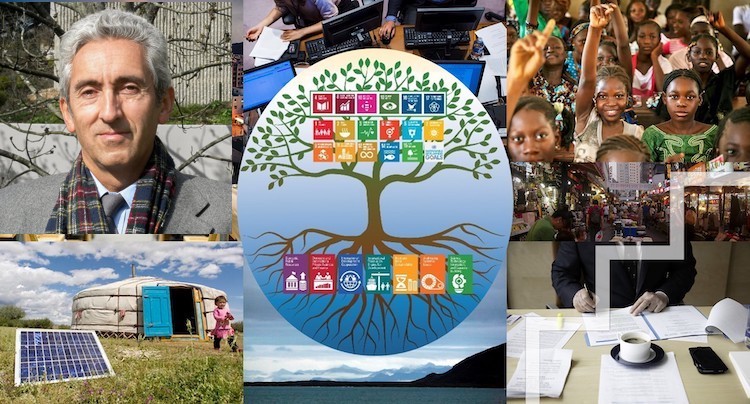
Viewpoint by Carlos Correa
The following is statement by Dr. Carlos Correa, Executive Director of the South Centre at the High-Level Dialogue on Financing for Development at the United Nations headquarters in New York on 26 September 2019.
NEW YORK (IDN-INPS) – Four years after its adoption, Agenda 2030, “Transforming Our World,” the United Nations’ (UN) most recent and most ambitious development agenda, is off-track.
Various estimates of the spending needed to achieve the Sustainable Development Goals (SDGs) range from $1 to $3 trillion. This is what would be required as a global total to, inter alia, eradicate poverty, educate and provide access to clean water to everyone, build infrastructure resilient to climate change and obtain almost all energy needs from non-fossil fuel sources.
Domestically mobilized resources are critical to attain those objectives. Government resources in developing countries have to serve as the “main pillar” of financing for development. Developing country governments are twice as dependent on corporate taxes as developed countries.
However, a 2019 Organisation for Economic Co-operation and Development (OECD) report found that government revenues in low income countries remain stubbornly below the 15 per cent of Gross Domestic Product (GDP) “considered necessary for effective state functioning”.
A main source of the inadequate scale of public revenues are shortfalls in corporate tax collection, which are largely explained by international corporations hosted by or doing businesses in developing countries that take advantage of facilities offered by the international tax standards and practices to avoid full payment of taxes in those countries.
Data gathered in the fight against Illicit Financial Flows (IFFs), pioneered by the United Nations Economic Commission for Africa (UNECA)-African Union (AU) Panel chaired by President Thabo Mbeki, indicate that for Africa 65% of lost revenue is from “commercial channels”, which consist of transactions that are legal from the standpoint of dominant tax international practices and standards, including those favored by OECD countries, but deprive African countries from a legitimate source of income.
Public investment in favor of sustainable development priorities is universally touted as critical, but the required scale of investment is readily undermined by standards and practices prevailing in the existing international tax system.
A substantive global reform process involving a variety of multilateral platforms is underway. The question is not whether the system of global tax standards and practices will change, but in what direction it will change.
Developing countries, who have long hosted subsidiaries of multinational companies and their activities, have sought changes in standards, procedures, and rules shaping the allocation of taxing rights among sovereign states. This has become even more urgent in the context of the digital economy.
Developing countries have made proposals seeking to change the dominant tax conventions’ procedures that ensure advantageous taxing rights to rich countries. Those proposals have been successful only in a piecemeal fashion and have remained as suggested alternatives -in the context of the UN Model Double Taxation Convention- to the overarching OECD Model Tax Convention, which contains agreed standards among the OECD members.
The OECD’s Base Erosion and Profit Shifting Project (BEPS) has become an important venue for reform discussions. The work of the UN’s Committee of Experts on International Cooperation in Tax Matters, while only an expert body, has garnered new intense interest on the part of developing country governments and international civil society because of its more representative character. Various bodies of the European Union (EU) have become active in adjudicating, analyzing, and making proposals on tax reform. Regional tax administration forums in Latin America and Africa became very active participants in these efforts.
While many developing countries have been included in lists as ‘tax havens’, developing country tax authorities have often found developed country facilities to be the most haven-friendly for taxpayers seeking to evade paying taxes where they operate.
In November 2016, the South Centre, an intergovernmental think-tank of, for and by developing countries, currently with 54 Member Countries, launched the “South Centre Tax Initiative”, a project to build a network of tax officials and experts from the South to advance the role of developing countries in the current global effort at tax reform and combatting illicit financial flows.
Drawing lessons from the developing country context will be critical if the ongoing process of global tax reform will benefit developing countries and achieve substantial success in generating the income needed to effectively attain the SDGs.
The South Centre thus joins the Group of 77 and China in inviting the community of the United Nations to locate the efforts to reform the standards and practices of the international tax system to venues where developing countries have secure access to setting the agenda and introducing their proposals.
The South Centre also joins the Group of 77 and China in its call to upgrade the UN Committee of Experts in International Cooperation of Tax Matters to an intergovernmental level. [IDN-InDepthNews – 04 October 2019]
Collage: South Centre Executive Director Dr Carlos Correa mounted on UN photo. IDN-INPS
IDN is flagship agency of the International Press Syndicate.
www.facebook.com/IDN.GoingDeeper – https://twitter.com/InDepthNews











